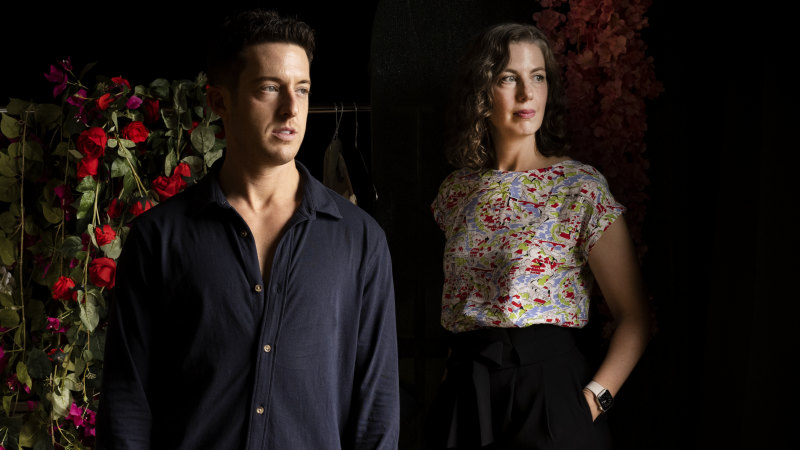Love, lust, magic and lies: this opera is the perfect pick-me-up

Save articles for later
Add articles to your saved list and come back to them any time.
Remarkably, in its more than two decades as the nation’s leading baroque opera specialist, Pinchgut Opera, has never performed an opera by the undisputed master of the baroque, George Frideric Handel.
They are finally putting that omission right with a season of one of Handel’s greatest operas – Rinaldo, an epic, swashbuckling tale of love, lust, sorcery and deception as the titular knight battles against the odds to rescue his lover, Almirena.
Countertenor Jake Arditti , who sings Rinaldo, with director Louisa Muller during rehearsals.Credit: Louise Kennerley
Pinchgut artistic director Erin Helyard says it is an extraordinary work that features “hit after hit”.
“This is one of the great operas,” he says. “Handel was at the peak of his powers and used all his keen theatrical sensibility to make this masterpiece.”
Rinaldo is being directed by American Louisa Muller, who is building a reputation around the world for exciting and innovative productions. Originally, it was to premiere here in 2020, but then the pandemic hit and plans were put on ice.
“I put the score on the shelf and when I came back to it two years later the world and I had undergone transformational shifts,” says Muller. “Somewhere along the way I seem to have shed my cynicism. I have a newfound appreciation for storytelling that is sincere, wholehearted and joyful, and it’s with this in mind that I have approached Rinaldo with fresh eyes.”
This is only Muller’s second baroque opera, but she is captivated by the emotional journeys of the main characters and how each of them is transformed by the end of the opera.
“The storytelling is very much about the internal struggles the characters have,” she says. “It’s about their relationships and not only about the narrative in the way some later operas are more plot driven.”
In true baroque style, Handel liberally employs recitative sections, in which the singers almost speak the words over a sparse accompaniment to move on the story.
“And then they have these moments where they go, ‘What just happened? What am I feeling? What is this? How should I react?’ ” says Muller.
“It goes out of time in a way I find delightful. It gives us so much opportunity to breathe rather than feeling that it always has to move on at a naturalistic pace.”
Much of the music in Rinaldo has been re-purposed by Handel, creating what has been called a “jukebox opera” of some of his greatest compositions, among them one of the most famous arias of all, Lascia ch’io pianga, sung by Almirena as she begs the king, Argante, to set her free.
Both Muller and Helyard agree that in a post-pandemic world the catharsis provided by works like Rinaldo is more important than ever.
“Nothing can replace being in a theatre with a thousand strangers when the lights go down,” says Helyard. “We’re not on our devices and we’re not at work and we’re not watching the news. We are watching human beings sing, accompanied by instruments made of wood and brass. It’s a real honour to be doing this.”
Rinaldo, City Recital Hall, from November 30.
The Booklist is a weekly newsletter for book lovers from books editor Jason Steger. Get it delivered every Friday.
Most Viewed in Culture
From our partners
Source: Read Full Article
